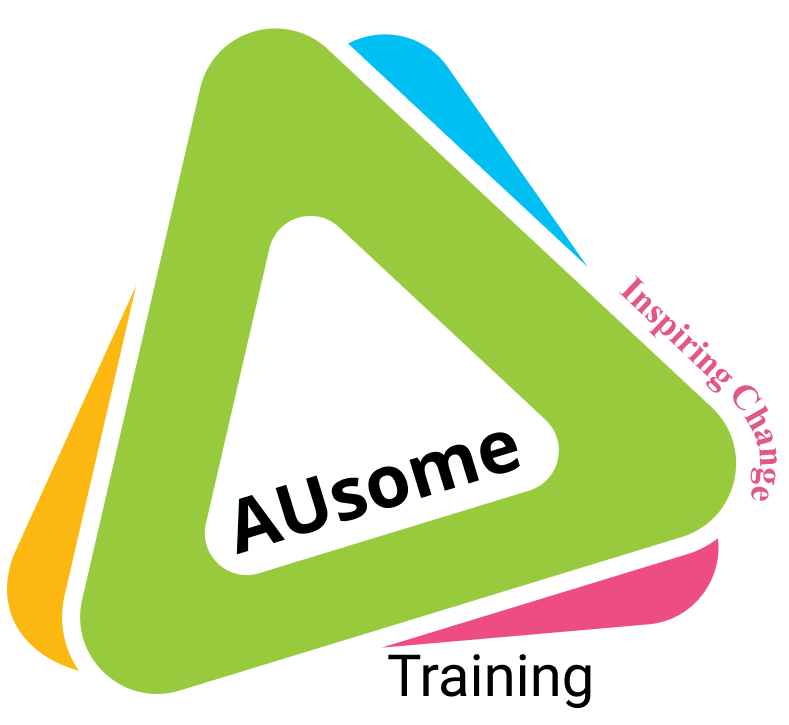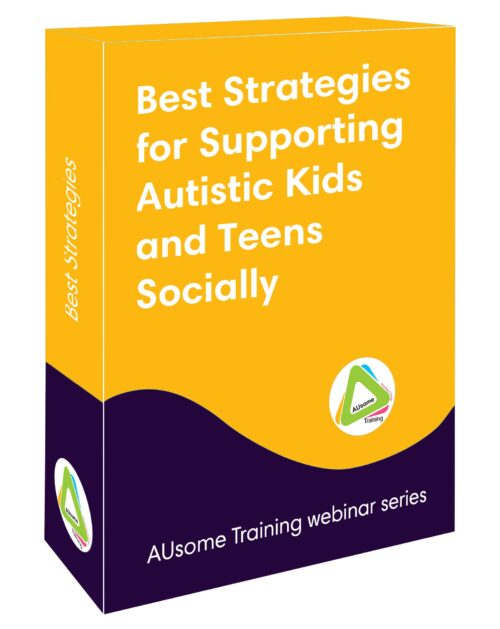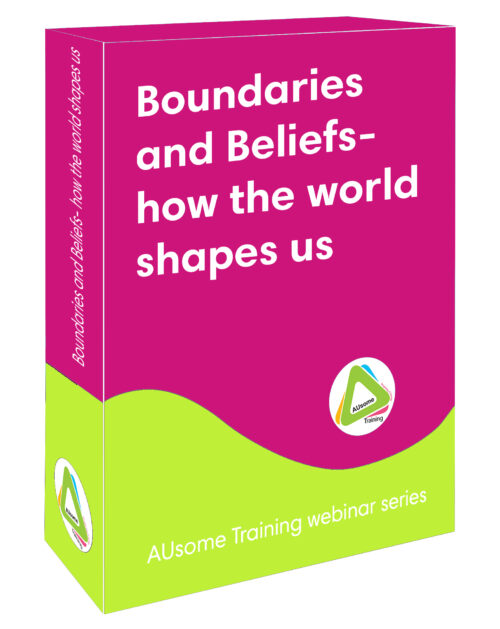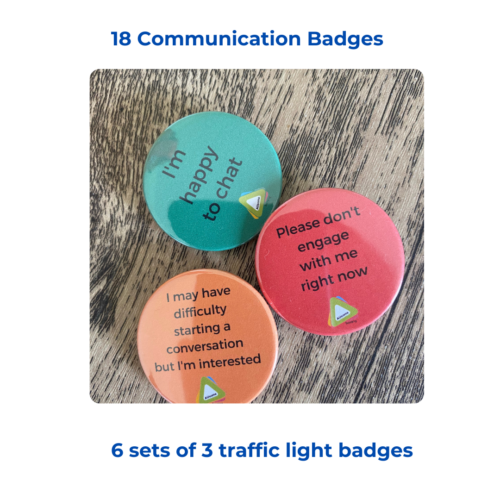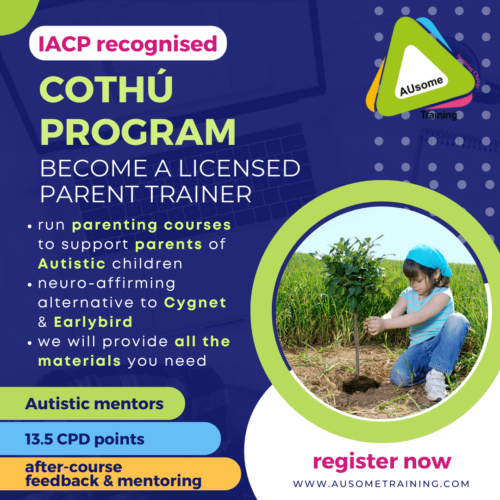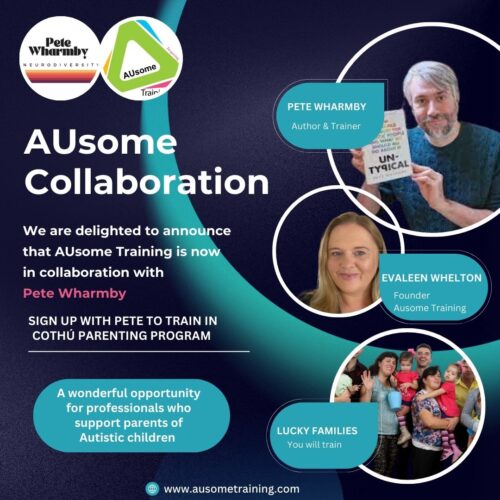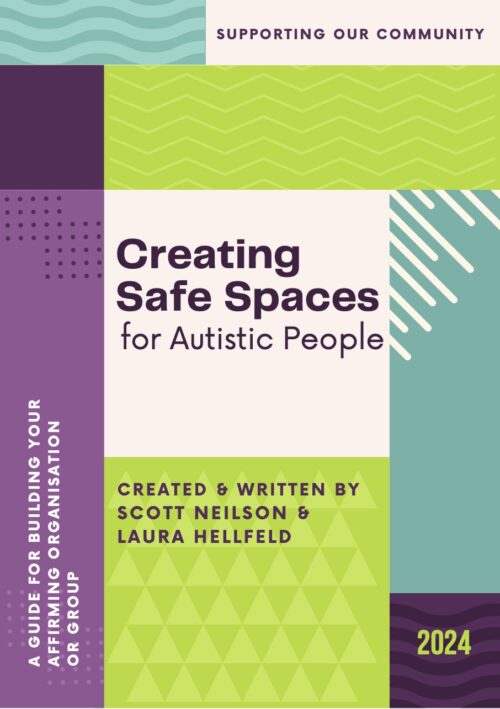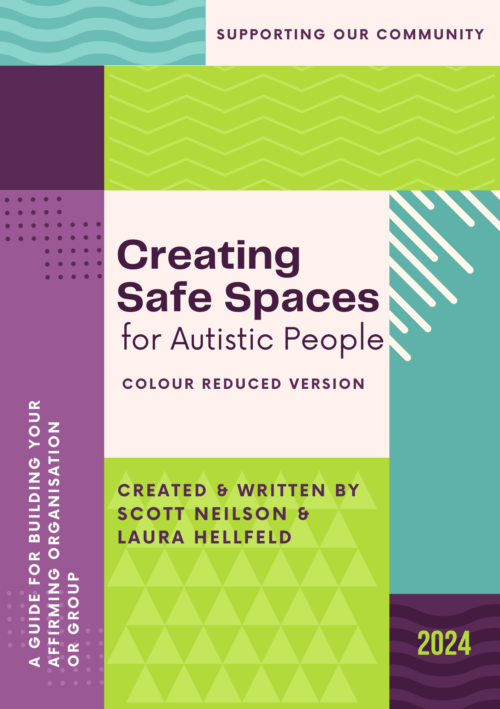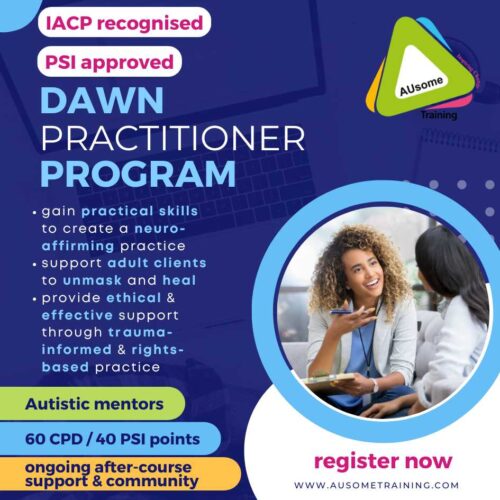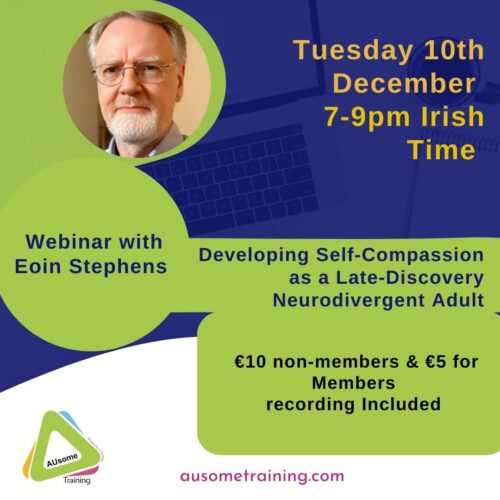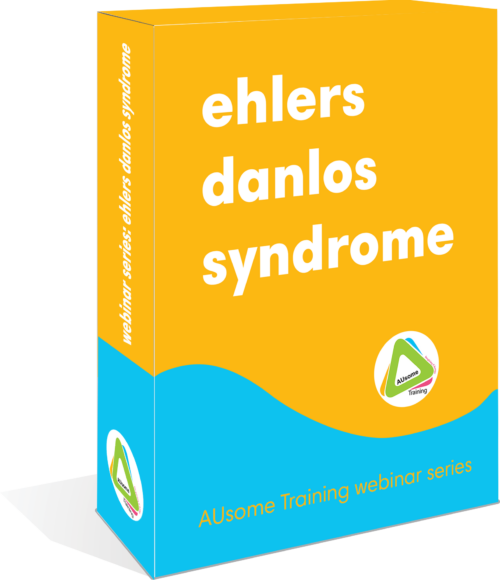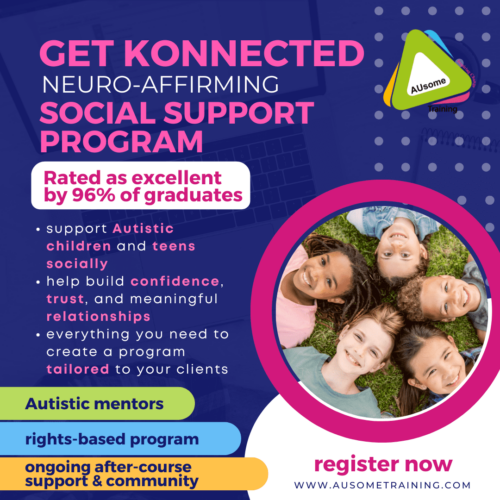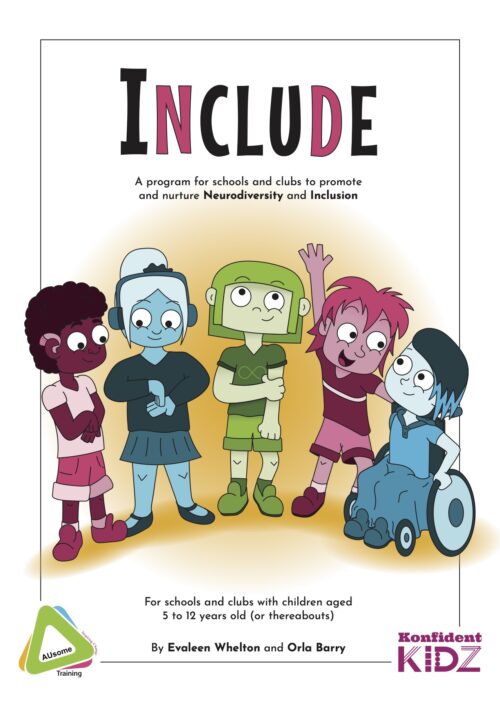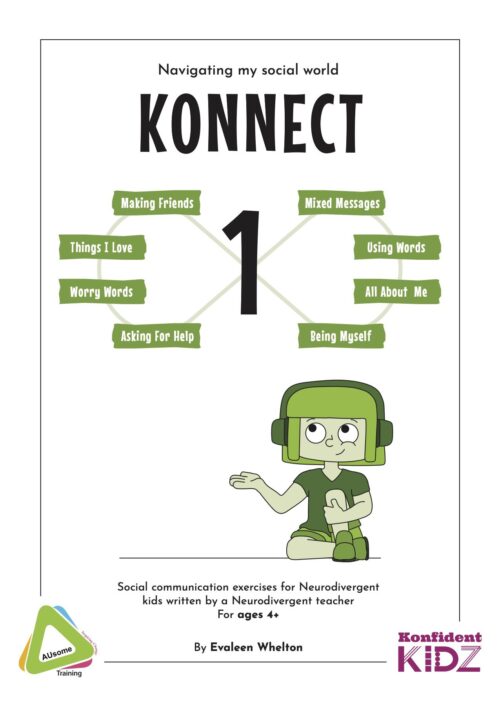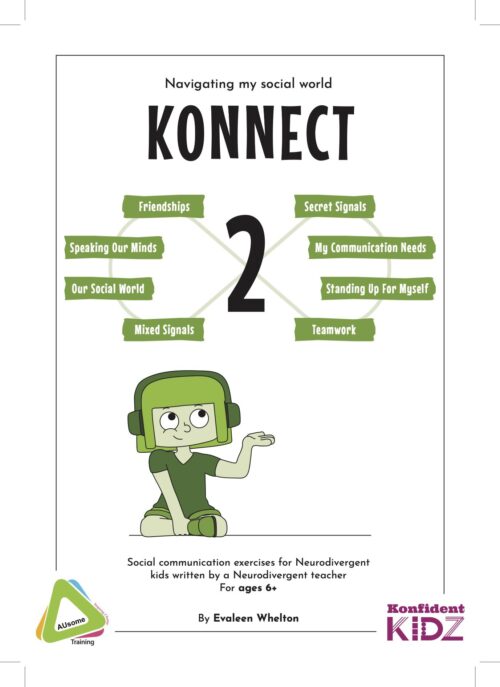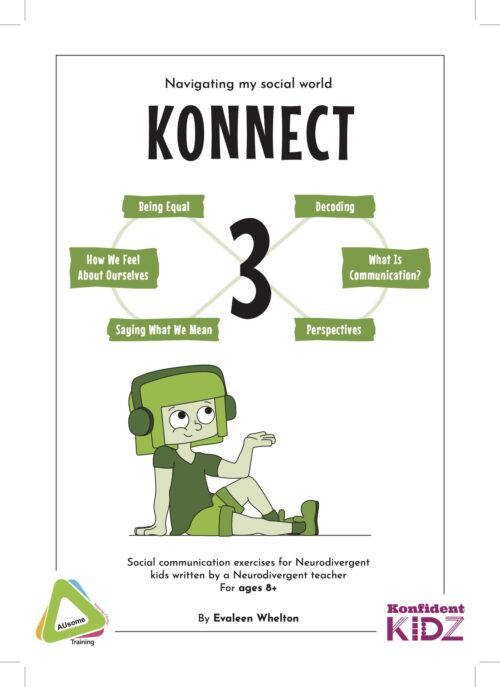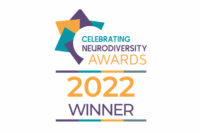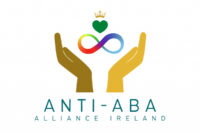-
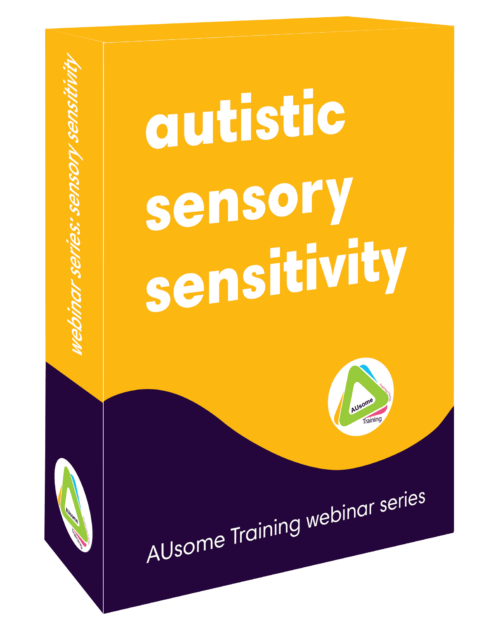 Sensory sensitivity is the latest addition to the diagnostic criteria used by clinicians assessing Autistics, less than a decade ago. However, Autistic people have been well aware just how prominent a characteristic this is for a lot longer, and understanding of the diversity and importance of those sensitivities is central to appreciating just how ‘being Autistic’ works on a daily basis. This session is ideal for parents, teachers, SNAs & therapists. Course length 2hrs 30mins Investment includes certificate of completion, lifetime access and presentation slides.
Sensory sensitivity is the latest addition to the diagnostic criteria used by clinicians assessing Autistics, less than a decade ago. However, Autistic people have been well aware just how prominent a characteristic this is for a lot longer, and understanding of the diversity and importance of those sensitivities is central to appreciating just how ‘being Autistic’ works on a daily basis. This session is ideal for parents, teachers, SNAs & therapists. Course length 2hrs 30mins Investment includes certificate of completion, lifetime access and presentation slides. -
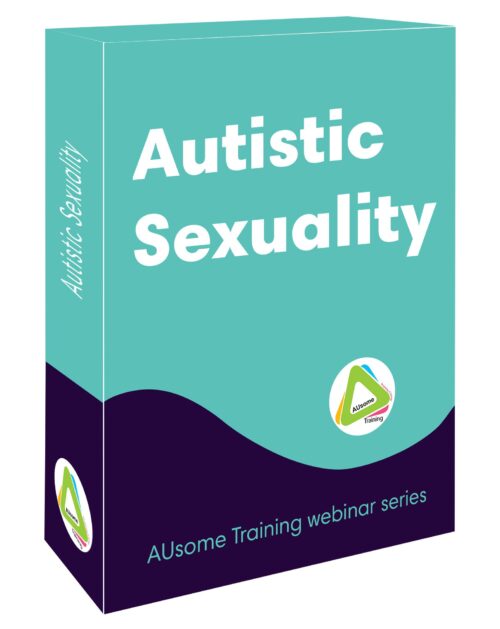 Join Katie Munday (they/them) a queer Autistic researcher, writer, and trainer in a session on Autistic experiences of sexuality Topics covered: Interoception Sensory intergration Co-occuring chronic illnesses Alexithymia and communication differences Plus, they look at Autistic experiences of kink and BDSM, masturbation and sex work. This course is for anybody who is interested in learning more about Autistic sexuality. Course length: 1 hour 52 mins Receive a certificate on completion of this course!
Join Katie Munday (they/them) a queer Autistic researcher, writer, and trainer in a session on Autistic experiences of sexuality Topics covered: Interoception Sensory intergration Co-occuring chronic illnesses Alexithymia and communication differences Plus, they look at Autistic experiences of kink and BDSM, masturbation and sex work. This course is for anybody who is interested in learning more about Autistic sexuality. Course length: 1 hour 52 mins Receive a certificate on completion of this course! -
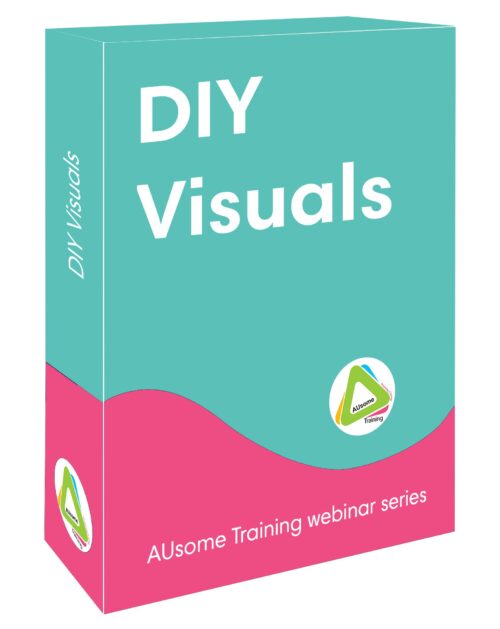 What are visual supports for autistic people, how might they help, and how can I make some? If you’ve ever wondered these questions (or more!) about tangible or digital items such as picture schedules, first-then displays, or step-by-step instructions for autistics of all ages, this webinar is for you! Appropriate for autistic/similar viewers as well as support people such as families, teachers, and assistants! Once you complete this on-demand course you will receive a certificate of completion. Please ensure you enter your name correctly as the name you enter will appear on your certificate. If using this course for a group training please enter the name of the organisation as only one certificate will be provided. If you require additional certificates please email us and we will provide them to you. Individual certs incur an administrative fee of €5 per cert.
What are visual supports for autistic people, how might they help, and how can I make some? If you’ve ever wondered these questions (or more!) about tangible or digital items such as picture schedules, first-then displays, or step-by-step instructions for autistics of all ages, this webinar is for you! Appropriate for autistic/similar viewers as well as support people such as families, teachers, and assistants! Once you complete this on-demand course you will receive a certificate of completion. Please ensure you enter your name correctly as the name you enter will appear on your certificate. If using this course for a group training please enter the name of the organisation as only one certificate will be provided. If you require additional certificates please email us and we will provide them to you. Individual certs incur an administrative fee of €5 per cert. -
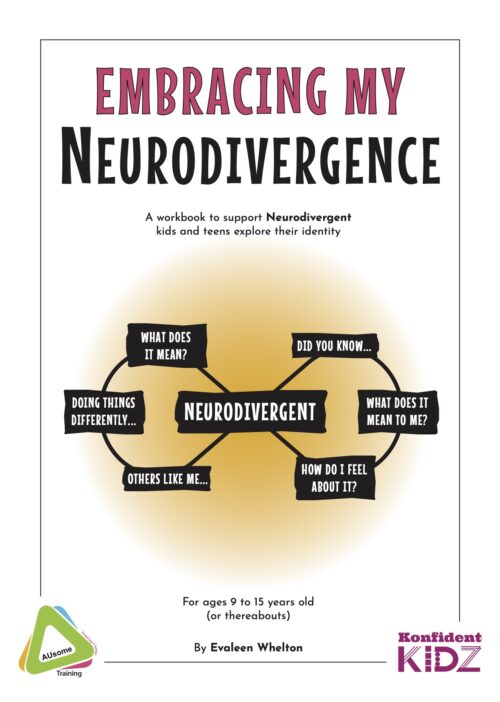 This beautiful book is the newest in our series of empowering books for Neurodivergent kids and teens Ideal for parents or professionals working with Autistic children and teens looking for Neurodiversity- affirming ways to explore diagnoses or identity. “What matters most is what we think and feel about ourselves. Your relationship with yourself is the most important relationship or friendship you will ever have.” Evaleen
This beautiful book is the newest in our series of empowering books for Neurodivergent kids and teens Ideal for parents or professionals working with Autistic children and teens looking for Neurodiversity- affirming ways to explore diagnoses or identity. “What matters most is what we think and feel about ourselves. Your relationship with yourself is the most important relationship or friendship you will ever have.” Evaleen -
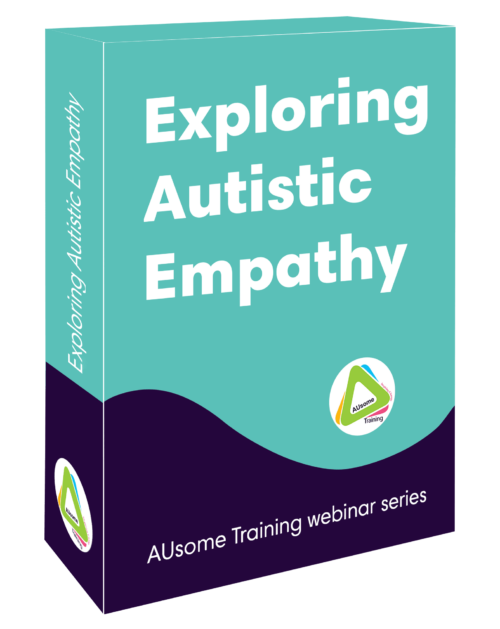 Join Scott Neilson (he/him) in a session on Exploring Autistic Empathy! Topics Covered: Myths and outdated theories around Autistic Empathy How Autistic people express empathy Autistic-led research on Autistic Empathy This session is aimed at Autistic people, families and anyone who supports Autistic people to get a better understanding of how empathy is expressed by our community Course length: 1 hour 25mins Receive a cert on completion of this course!
Join Scott Neilson (he/him) in a session on Exploring Autistic Empathy! Topics Covered: Myths and outdated theories around Autistic Empathy How Autistic people express empathy Autistic-led research on Autistic Empathy This session is aimed at Autistic people, families and anyone who supports Autistic people to get a better understanding of how empathy is expressed by our community Course length: 1 hour 25mins Receive a cert on completion of this course! -
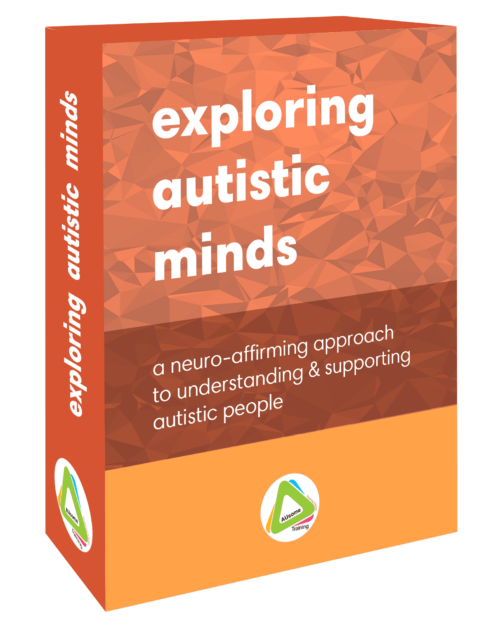 This neuro-affirming course teaches people about autism from the Autistic viewpoint with a fantastic line-up of Autistic presenters. And now it’s available online! All of our Speakers are Autistic!
This neuro-affirming course teaches people about autism from the Autistic viewpoint with a fantastic line-up of Autistic presenters. And now it’s available online! All of our Speakers are Autistic!- Evaleen Whelton, Founder of AUsome Ireland. Opening Address
- Chris Bonnello, Autisticnotweird.com: Insights from an Autistic Teacher Melissa Murphy: “Authoring Autism”
- Frank L Ludwig: “The Necessity of Autism”
- Emma Dalmayne: “Autism ‘cures’ and the need for more intolerance”
- Kieran Rose: “An Autistic Identity”
- Eoin Stephens: “Double Vision – My experience of autism from both personal & professional perspectives”
- Panel Discussion on Neurodiversity: Stiof MacAmhalghaidh, Kieran Rose and Chen Gershuni
- Panel Discussion on Health and Mental Health
-
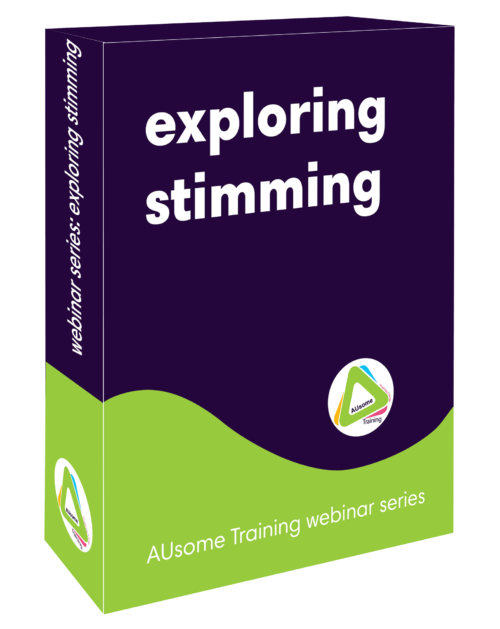
This course explains the many functions behind stimming and what the Autistic person is communicating through their stims. Stimming is Autistic language. We communicate through movement and sounds first. Words are our second language.
This session is ideal for Autistic people themselves, but also useful for teachers, SNAs, family members, therapists and employers.
Investment includes certificate of completion, lifetime access to the course and course materials.
Course Length 2hr
-
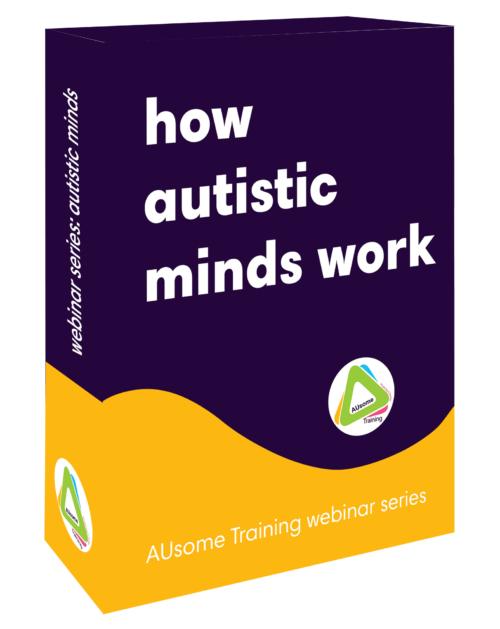 Much that gets written about Autistics focuses on description, of traits, of ‘symptoms,’ of ‘behaviours,’ of likes and dislikes, of abilities and impairments. This is akin to describing the exterior of a house while remaining oblivious to how that building functions as a home to live in. Join us to explore the How and Why behind the ways Autistic people think, feel, imagine, hope, and how that plays out in real life scenarios. This course is ideal for parents, teachers, SNAs & therapists, but would also be useful for Autistic adults Course length 2hrs 30mins Investment includes certificate of completion, lifetime access and presentation slides.
Much that gets written about Autistics focuses on description, of traits, of ‘symptoms,’ of ‘behaviours,’ of likes and dislikes, of abilities and impairments. This is akin to describing the exterior of a house while remaining oblivious to how that building functions as a home to live in. Join us to explore the How and Why behind the ways Autistic people think, feel, imagine, hope, and how that plays out in real life scenarios. This course is ideal for parents, teachers, SNAs & therapists, but would also be useful for Autistic adults Course length 2hrs 30mins Investment includes certificate of completion, lifetime access and presentation slides. -
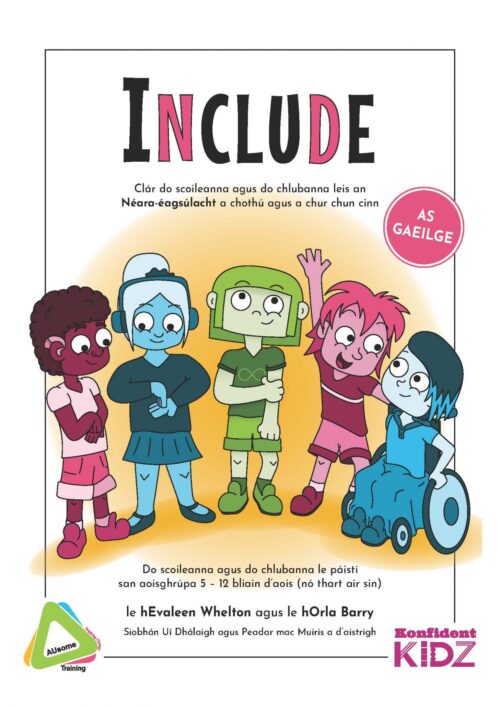 We are delighted to offer our INCLUDE program 'as gaeilge'.
We are delighted to offer our INCLUDE program 'as gaeilge'.Clár do scoileanna agus do chlubanna leis an Néara-éagsúlacht a chothú agus a chur chun cinn le páistí san aoisghrúpa 5 - 12 bliain d'aois (nó thart air sin)
Order now for immediate download. The book will appear in your account under "my downloads". -
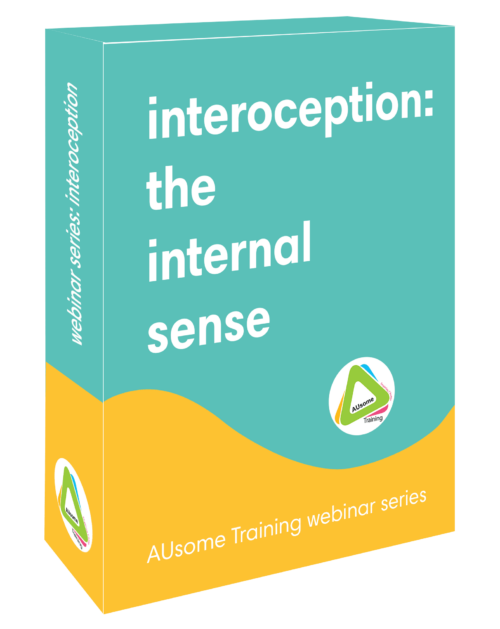 Our Interoception course is delivered by Katie Kerley. Katie is an occupational therapist and Clinical Director of Horizon Therapy Services in Dundalk. She is multiply-neurodivergent (Autisitc, ADHD, and Dyspraxic) herself and is passionate about helping neurodivergent people be the best and most satisfied version of themselves through the lens of meaningful occupation. In our Interoception course we will explore this lesser known sense. Ideal for Neurodivergent people and parents/caregivers of Neurodivergent children, or anyone who is interested generally. Course Length 2hrs 30mins €30 includes access to the recording, cert and slides
Our Interoception course is delivered by Katie Kerley. Katie is an occupational therapist and Clinical Director of Horizon Therapy Services in Dundalk. She is multiply-neurodivergent (Autisitc, ADHD, and Dyspraxic) herself and is passionate about helping neurodivergent people be the best and most satisfied version of themselves through the lens of meaningful occupation. In our Interoception course we will explore this lesser known sense. Ideal for Neurodivergent people and parents/caregivers of Neurodivergent children, or anyone who is interested generally. Course Length 2hrs 30mins €30 includes access to the recording, cert and slides -
 This is the first in a series of 3 social skills books designed to help kids explore how we communicate and how others communicate. It is suitable for kids aged 4 onwards. It offers ways to self advocate. Unlike most social skills books written by people who are not Autistic and do not understand Autistic communication, this book does not encourage children to mimic or copy communication which is not natural to us. Many social skills program unfortunately encourage children to mask , which in turn leads to poor mental health. This book is a celebration of our way of communicating and an introduction to non-autistic communication. It encourages positive identity and self confidence. What topics do we cover?
This is the first in a series of 3 social skills books designed to help kids explore how we communicate and how others communicate. It is suitable for kids aged 4 onwards. It offers ways to self advocate. Unlike most social skills books written by people who are not Autistic and do not understand Autistic communication, this book does not encourage children to mimic or copy communication which is not natural to us. Many social skills program unfortunately encourage children to mask , which in turn leads to poor mental health. This book is a celebration of our way of communicating and an introduction to non-autistic communication. It encourages positive identity and self confidence. What topics do we cover?- Worry Words
- Things to talk about
- Body Language
- Reading Facial Expressions
- Direct Speech v Indirect Speech
- My Feelings
- Mixed Messages
- Tone of Voice
- Making Friends
- Conversations
-
 This activity book is the second in a series of 3 activity books designed to help kids explore how we communicate and how others communicate. It is suitable for kids aged 6 onwards. What topics do we look at in this book?
This activity book is the second in a series of 3 activity books designed to help kids explore how we communicate and how others communicate. It is suitable for kids aged 6 onwards. What topics do we look at in this book?- Trying New Things
- Joining In
- Conversations
- Mixed Messages
- My Feelings
- Friendship
- Teamwork
- Vocal Volume
- Standing up for Myself
-
 This activity book is the second in a series of 3 activity books designed to help kids explore how we communicate and how others communicate. It is suitable for kids aged 6 onwards. What topics do we look at in this book?
This activity book is the second in a series of 3 activity books designed to help kids explore how we communicate and how others communicate. It is suitable for kids aged 6 onwards. What topics do we look at in this book?- Trying New Things
- Joining In
- Conversations
- Mixed Messages
- My Feelings
- Friendship
- Teamwork
- Vocal Volume
- Standing up for Myself
-
 This activity book is the third in a series of 3 activity books designed to help kids explore how we communicate and how others communicate. It is suitable for kids aged 8 onwards. However it is advisable to use book and 1 and 2 before moving onto this book, no matter what age your child is as they lay the foundations for book 3. What topics do we look at in this book?
This activity book is the third in a series of 3 activity books designed to help kids explore how we communicate and how others communicate. It is suitable for kids aged 8 onwards. However it is advisable to use book and 1 and 2 before moving onto this book, no matter what age your child is as they lay the foundations for book 3. What topics do we look at in this book?- Sarcasm
- Perspectives
- Persuasive language
- Inflection
- Tone
- Figurative language
- Metaphors
- Exaggerations
- Emphasis
- Joining in
- Conversations
-
 This activity book is the third in a series of 3 activity books designed to help kids explore how we communicate and how others communicate. It is suitable for kids aged 8 onwards. However it is advisable to use book and 1 and 2 before moving onto this book, no matter what age your child is as they lay the foundations for book 3. What topics do we look at in this book?
This activity book is the third in a series of 3 activity books designed to help kids explore how we communicate and how others communicate. It is suitable for kids aged 8 onwards. However it is advisable to use book and 1 and 2 before moving onto this book, no matter what age your child is as they lay the foundations for book 3. What topics do we look at in this book?- Sarcasm
- Perspectives
- Persuasive language
- Inflection
- Tone
- Figurative language
- Metaphors
- Exaggerations
- Emphasis
- Joining in
- Conversations
